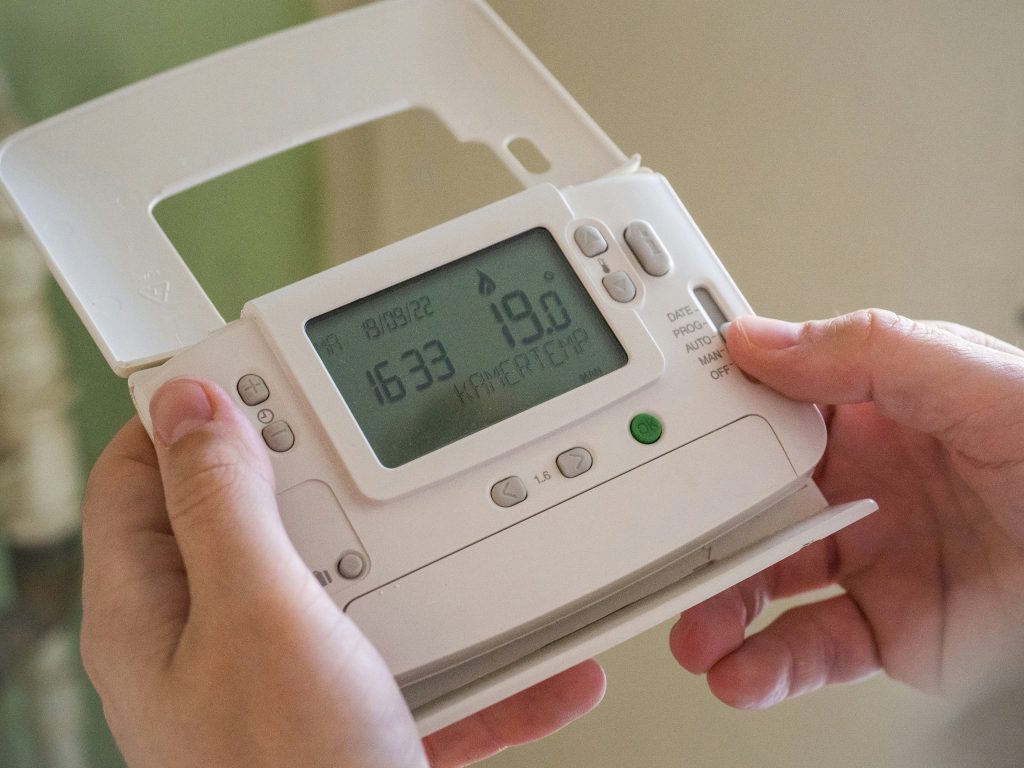In today’s world, where environmental concerns are at the forefront of global discussions, it is essential for families to adopt energy-saving practices in their homes. By making small changes to their daily routines and investing in eco-friendly home improvements, families can significantly reduce their carbon footprint and contribute to a more sustainable future. This article will explore a variety of energy-saving tips for families, including eco-friendly home improvements, energy-efficient appliances and electronics, behavioural changes for energy conservation, maximising natural light and ventilation, heating and cooling efficiency, and teaching children about energy conservation.
By implementing these tips, families can not only save money on their energy bills but also make a positive impact on the environment.
Summary
- Introducing energy-saving tips for families can help reduce energy consumption and save money on utility bills.
- Eco-friendly home improvements, such as installing insulation and using energy-efficient windows, can make a significant impact on reducing energy usage.
- Upgrading to energy-efficient appliances and electronics can lower energy consumption and decrease electricity costs for families.
- Making behavioural changes, such as turning off lights and unplugging electronics when not in use, can contribute to energy conservation at home.
- Maximising natural light and ventilation can reduce the need for artificial lighting and air conditioning, leading to energy savings.
Eco-Friendly Home Improvements
One of the most effective ways for families to save energy is by making eco-friendly home improvements. This can include installing energy-efficient windows and doors, adding insulation to walls and attics, and using sustainable building materials. Energy-efficient windows and doors help to prevent heat loss in the winter and keep the home cool in the summer, reducing the need for heating and air conditioning.
Additionally, proper insulation can significantly reduce energy consumption by maintaining a consistent temperature inside the home. Using sustainable building materials, such as bamboo flooring or recycled glass countertops, not only reduces the environmental impact of construction but also improves indoor air quality. By investing in these eco-friendly home improvements, families can create a more energy-efficient and environmentally friendly living space.
Another eco-friendly home improvement that families can consider is installing a solar panel system. Solar panels harness the power of the sun to generate electricity, reducing the reliance on traditional energy sources. While the initial cost of installing solar panels may be high, the long-term savings on energy bills make it a worthwhile investment.
In addition to saving money, solar panels also reduce greenhouse gas emissions and contribute to a cleaner environment. Furthermore, some governments offer incentives and rebates for installing solar panels, making it an even more attractive option for families looking to go green. Overall, eco-friendly home improvements not only save energy but also promote sustainability and environmental responsibility.
Energy-Efficient Appliances and Electronics

Another important aspect of energy-saving tips for families is investing in energy-efficient appliances and electronics. When shopping for new appliances, families should look for products with the Energy Star label, which indicates that they meet strict energy efficiency guidelines set by the Environmental Protection Agency. Energy-efficient appliances, such as refrigerators, washing machines, and dishwashers, consume less energy and water while still providing high-quality performance.
Similarly, when purchasing electronics such as televisions, computers, and gaming consoles, families should opt for models that are designed to be energy efficient. By replacing old, inefficient appliances and electronics with energy-efficient ones, families can significantly reduce their energy consumption and lower their utility bills. In addition to choosing energy-efficient appliances and electronics, families can also take steps to reduce the energy consumption of their existing devices.
This can include unplugging electronics when they are not in use, using power strips to easily turn off multiple devices at once, and adjusting the settings on appliances to minimise energy usage. For example, lowering the temperature setting on the water heater or using the energy-saving mode on a computer can make a noticeable difference in energy consumption over time. By being mindful of their appliance and electronics usage, families can further reduce their environmental impact and save on energy costs.
Behavioural Changes for Energy Conservation
| Behavioural Changes | Impact on Energy Conservation |
|---|---|
| Turning off lights when not in use | Reduces electricity consumption |
| Using natural light during the day | Decreases reliance on artificial lighting |
| Unplugging electronic devices when not in use | Reduces standby power consumption |
| Setting air conditioning to higher temperatures | Reduces energy usage for cooling |
| Using energy-efficient appliances | Decreases overall energy consumption |
In addition to making physical changes to their homes and investing in energy-efficient appliances, families can also adopt behavioural changes to conserve energy. Simple habits such as turning off lights when leaving a room, using natural light during the day, and using ceiling fans instead of air conditioning can all contribute to significant energy savings. Additionally, being mindful of water usage by taking shorter showers, fixing leaks promptly, and using water-saving fixtures can also help conserve energy.
By making these small but impactful changes to their daily routines, families can reduce their overall energy consumption and contribute to a more sustainable lifestyle. Another behavioural change that can lead to energy conservation is meal planning and cooking efficiently. Using energy-efficient cooking methods such as using lids on pots and pans, matching the size of the burner to the size of the pot, and using microwaves or toaster ovens for small meals can all help reduce energy usage in the kitchen.
Additionally, planning meals in advance and avoiding food waste can also lead to energy savings by reducing the need for frequent grocery shopping trips and excessive use of kitchen appliances. By being mindful of their daily habits and making small adjustments to their routines, families can make a significant impact on their energy consumption and contribute to a more sustainable future.
Maximising Natural Light and Ventilation
Maximising natural light and ventilation in the home is another effective way for families to save energy. By opening curtains and blinds during the day, families can take advantage of natural light and reduce the need for artificial lighting. Additionally, using light-coloured window treatments and reflective surfaces can help bounce natural light deeper into the room, further reducing the need for electric lighting.
Maximising natural ventilation by opening windows and using ceiling fans can also help regulate indoor temperatures without relying on air conditioning. By utilising natural light and ventilation, families can reduce their reliance on electricity and create a more comfortable and energy-efficient living environment. Another way to maximise natural light and ventilation is by strategically landscaping around the home.
Planting trees or shrubs strategically around the house can provide shade in the summer and block cold winds in the winter, reducing the need for heating and air conditioning. Additionally, installing skylights or solar tubes can bring natural light into darker areas of the home without relying on electric lighting. By incorporating these strategies into their homes, families can reduce their energy consumption while creating a more pleasant and sustainable living space.
Heating and Cooling Efficiency

Heating and cooling account for a significant portion of a household’s energy consumption, making it essential for families to focus on improving efficiency in this area. One way to achieve this is by properly maintaining heating and cooling systems through regular servicing and cleaning. Dirty filters in furnaces or air conditioners can restrict airflow and cause the systems to work harder, leading to increased energy consumption.
By keeping these systems clean and well-maintained, families can ensure that they operate at peak efficiency and consume less energy. Another way to improve heating and cooling efficiency is by investing in programmable thermostats. These devices allow families to set specific temperatures for different times of day or night, ensuring that heating or cooling systems are not running unnecessarily when no one is at home or when everyone is asleep.
Additionally, families can consider upgrading to high-efficiency HVAC systems that use less energy while still providing effective heating and cooling. By taking these steps to improve heating and cooling efficiency, families can significantly reduce their energy consumption and lower their utility bills.
Teaching Children about Energy Conservation
Finally, it is essential for families to teach children about the importance of energy conservation from a young age. By instilling good habits early on, children can grow up with a strong understanding of the value of saving energy and caring for the environment. Parents can involve children in simple tasks such as turning off lights when leaving a room or helping with recycling efforts.
Additionally, parents can educate children about where energy comes from, how it is used in the home, and why it is important to conserve it. Furthermore, families can engage children in fun activities that promote energy conservation, such as creating art projects from recycled materials or planting a vegetable garden to learn about sustainable food production. By making learning about energy conservation enjoyable and interactive, children are more likely to develop a lifelong commitment to sustainable living.
Ultimately, teaching children about energy conservation not only benefits the environment but also helps shape responsible and environmentally conscious individuals for the future. In conclusion, adopting energy-saving practices in the home is essential for families looking to reduce their environmental impact and save on energy costs. By making eco-friendly home improvements, investing in energy-efficient appliances and electronics, adopting behavioural changes for energy conservation, maximising natural light and ventilation, improving heating and cooling efficiency, and teaching children about energy conservation, families can make a significant difference in their overall energy consumption.
Through these efforts, families can create a more sustainable living environment while instilling important values in future generations.
If you’re looking for more tips on sustainable living, be sure to check out this article on building an earth-friendly home. It offers valuable advice on how to create a more eco-friendly living space, which can ultimately help reduce energy bills for families.
FAQs
What are some simple ways to cut down on energy bills for families?
Some simple ways to cut down on energy bills for families include using energy-efficient appliances, turning off lights and electronics when not in use, using programmable thermostats, and improving insulation in the home.
How can using energy-efficient appliances help cut down on energy bills?
Energy-efficient appliances use less energy to operate, which can result in lower energy bills for families. Look for appliances with the Energy Star label, which indicates that they meet strict energy efficiency guidelines set by the government.
Why is it important to turn off lights and electronics when not in use?
Leaving lights and electronics on when not in use can waste a significant amount of energy and contribute to higher energy bills. Encouraging family members to turn off lights and unplug electronics when not in use can help reduce energy consumption.
How can programmable thermostats help reduce energy bills for families?
Programmable thermostats allow families to set specific temperatures for different times of the day, which can help reduce energy usage when no one is home or when everyone is asleep. This can lead to lower energy bills by reducing unnecessary heating or cooling.
What are some ways to improve insulation in the home to cut down on energy bills?
Improving insulation in the home can help reduce the amount of energy needed to heat or cool the space. This can be done by adding insulation to walls, attics, and basements, as well as sealing any air leaks around windows and doors.



